
Profit and prosper with the best of Kiplinger's advice on investing, taxes, retirement, personal finance and much more. Delivered daily. Enter your email in the box and click Sign Me Up.
You are now subscribed
Your newsletter sign-up was successful
Want to add more newsletters?

Delivered daily
Kiplinger Today
Profit and prosper with the best of Kiplinger's advice on investing, taxes, retirement, personal finance and much more delivered daily. Smart money moves start here.

Sent five days a week
Kiplinger A Step Ahead
Get practical help to make better financial decisions in your everyday life, from spending to savings on top deals.

Delivered daily
Kiplinger Closing Bell
Get today's biggest financial and investing headlines delivered to your inbox every day the U.S. stock market is open.

Sent twice a week
Kiplinger Adviser Intel
Financial pros across the country share best practices and fresh tactics to preserve and grow your wealth.

Delivered weekly
Kiplinger Tax Tips
Trim your federal and state tax bills with practical tax-planning and tax-cutting strategies.

Sent twice a week
Kiplinger Retirement Tips
Your twice-a-week guide to planning and enjoying a financially secure and richly rewarding retirement

Sent bimonthly.
Kiplinger Adviser Angle
Insights for advisers, wealth managers and other financial professionals.

Sent twice a week
Kiplinger Investing Weekly
Your twice-a-week roundup of promising stocks, funds, companies and industries you should consider, ones you should avoid, and why.

Sent weekly for six weeks
Kiplinger Invest for Retirement
Your step-by-step six-part series on how to invest for retirement, from devising a successful strategy to exactly which investments to choose.
2020 is nearly over, but the COVID-19 pandemic isn't.
This coronavirus has upended virtually every aspect of life, in turn triggering a bizarre domino effect across corporate America. Many businesses were shut down for good. The stock market experienced a record-setting crash (and rebound). In a few cases, however, some so-called coronavirus stocks weren't just capable of withstanding the storm – they were arguably better off for it.
Changes in consumer habits – an accelerated embrace of e-commerce, video games and working from home – have had major ripple effects. These trends have sped up declines in a number of businesses, even causing a cascade of bankruptcy filings. But they've also acted as "kingmakers," elevating a few niche tech plays into large-cap status, and strengthening the already dominant positions of a few mega-cap companies.
That advantage still matters, as COVID-19 hasn't gone away. A "second wave" is emerging across much of the world, including here at home. U.S. daily coronavirus caseloads are regularly breaking records, and recently have jumped well above the 100,000 mark.
Here, we look at a dozen coronavirus stocks to buy. Each of these companies has at least doubled the market so far in 2020, and they could benefit still more from a "second wave." But more importantly, they're all positioned for additional growth longer-term thanks to many of the trends COVID-19 either put into place or got up to speed. Just note that some of these stocks could experience short-term volatility amid any serious bouts of market profit-taking just given their already handsome gains.
Data is as of Nov. 5.
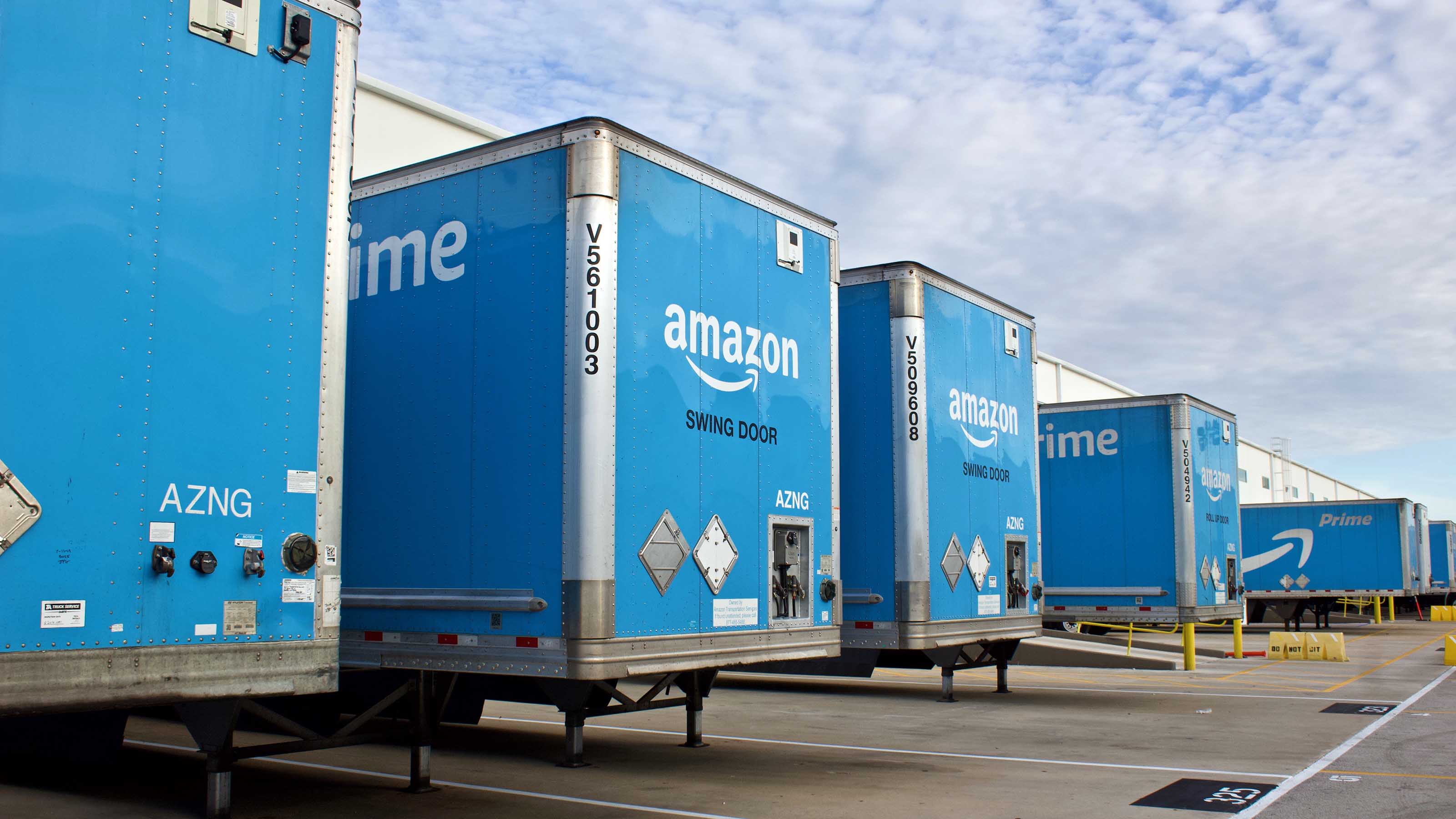
Amazon.com
- Market value: $1.67 trillion
Amazon.com (AMZN, $3,322.00), for all of its dominance, produced virtually flat performance between mid-2018 and the end of 2019. However, 2020 has been the perfect storm for the e-commerce giant.
When the coronavirus lockdown caused stores to shut their doors in March, online shopping suddenly got a whole lot more popular than it already was. Amazon was inundated with orders and quickly put out a call to hire 100,000 new workers, subsequently hiring an additional 75,000 more.
But that wasn't the only COVID boon. Businesses also flocked to digitize their businesses, and many of them sought out Amazon Web Services (AWS) – the world's leading cloud services provider.
Amazon has already recorded its most profitable year ever, and it still has a quarter to go. In the second quarter, revenues jumped 40% to $88.9 billion and profits doubled to $5.2 billion. Sales were similarly higher (37% to $96.1 billion) in Q3, and net income tripled to $6.3 billion.
The trends powering Amazon aren't about to disappear, either.
"We do not regard the current acceleration in Amazon revenue as aberrant, but as indicative of what is to come in the next several quarters at least," writes Argus Research analyst Jim Kelleher, who rates the stock at Buy with a 12-month price target of $3,600. "We believe AMZN warrants long-term accumulation in most equity accounts given the company's indisputable franchise leadership in online retail, ability to leverage its vendor relationships in the retail space, thriving connected-home platform, and market dominance in Cloud (infrastructure-as-a-service)."
The vast majority of Wall Street remains wildly bullish on AMZN stock despite the fact it has already gained 80% year-to-date. Of the 48 analysts who cover it, 47 give it either a Strong Buy or Buy – the lone dissenter still says it's a Hold rather than a Sell. And an average price target of $3,821.74 per share implies this coronavirus stock has at least 15% upside from current prices.

PayPal
- Market value: $239.7 billion
Cash use was one of the early shifts of the coronavirus pandemic.
In a widely circulated U.K. article published in March, the World Health Organization appeared to voice concerns that the coronavirus could be transmitted through the handling of money and recommended consumers and businesses stick to contactless payment wherever possible.
Although the WHO later clarified its comments, the damage was already done. Cash quickly became persona non grata at many stores and restaurants. Besides, a shift to online shopping and food delivery services meant cash couldn't be used for most transactions anyway.
This was all good news for PayPal (PYPL, $204.56), which operates one of the world's most popular online payment systems, as well as its Venmo mobile payment app. U.S. customers were even able to have their stimulus checks directly deposited to their Venmo account.
For what it's worth, America (and the rest of the world) has been reducing its cash use for decades. The pandemic merely accelerated this trend. It also lit a fire under PayPal stock, which is up nearly 90% year-to-date, and should benefit as many expect online shopping to continue apace, and cash use to decline further.
"PayPal continues to be the dominant 'play' on this year's inflection point in eCommerce usage/expansion benefiting its 2-sided, consumer/merchant platforms," write Wedbush analysts, who rate the stock at Outperform and give it a $220 price target.
They're hardly alone. Thirty-nine analysts have PYPL among their buy-worthy coronavirus stocks, while just six say Hold and a lone pro says Sell.

Electronic Arts
- Market value: $37.1 billion
Video games have been growing in popularity for decades, but their ecosystem has really been evolving over the past few years thanks to the emergence of e-sports and the popularity of streaming-viewing services such as Twitch.
COVID-19 turned up the dial on video game playing, however. While in lockdown, consumers gobbled up consoles and games. That put game publishers among the market's best coronavirus stocks, including Electronic Arts (EA, $128.33), the creator of popular sports series such as Madden and FIFA, as well as other titles such as The Sims, Battlefield and Apex Legends.
But remember, other big factors are in play, too. Streaming PC gaming services are going mainstream; for instance, Google launched its Stadia service in November 2019, and in September 2020, Amazon.com announced its Luna cloud gaming service. Gaming streaming services license games, which is good for publishers like EA.
Perhaps the biggest reason to be bullish right now is this holiday season's launch of next-gen video game consoles: The PlayStation 5 and Xbox Series X. The previous generation of consoles has been around since 2013, and the new ones are going to be a huge leap forward in performance, including 4K graphics, real-time ray tracing and high-speed storage. That should trigger a rush to take advantage of the new system.
"Our Buy rating on EA is based on several potential catalysts including 1) the "stay-at-home" trade; 2) the console transition; 3) a new Battlefield game (FY2022 launch); along with 4) a favorable industry backdrop for video games, over the intermediate/longer-term," write Stifel analysts. Nearly two-thirds of analysts covering EA stock are in the same boat, calling shares a Buy or Strong Buy.
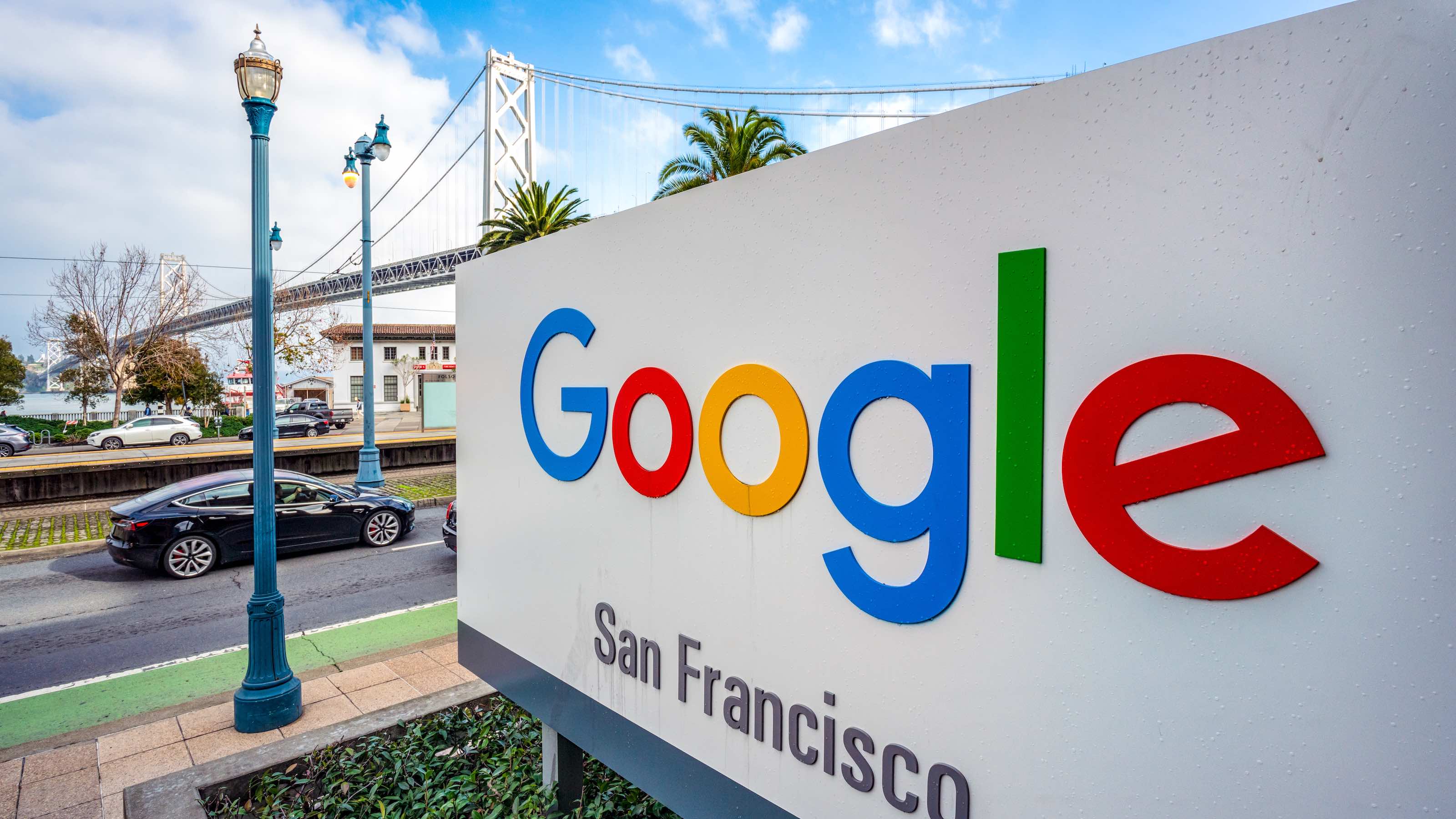
Alphabet
- Market value: $1.19 trillion
Google parent Alphabet (GOOGL, $1,762.50) took a strong hit during the pandemic-fueled bear market, and for good reason. With businesses shuttering and a recession looming, companies were expected to clamp down on their advertising spending.
Given that more than 90% of Alphabet's 2019 revenues were generated by advertising (whether via Google or YouTube), any ad-spending cutbacks would certainly be felt.
Sure enough, in Q2 2020, Alphabet reported its first quarterly revenue decline in company history. That said, the 2% decline was still better than most analysts expected, and the company bounced back in Q3, growing revenues by 14% year-over-year and net income by 62%.
That said, investors never sold off GOOGL shares as violently as they did the broader market, and it has recovered and plenty more with 32% gains into late 2020. That's in part because of the narrative that digital advertising wasn't going away long-term, and indeed, that the pandemic might bring even more advertising spend online in the longer term.
Alphabet is even cakewalking past the prospect of punitive action. A recently released U.S. House Judiciary subcommittee report concluded Google has monopoly power as "the overwhelmingly dominant provider of general online search," and the Department of Justice has sued it, alleging it has violated antitrust laws. But shares are actually up by double digits since the suit was filed.
Legal challenges remain a concern, but the business clearly is recovering.
"Alphabet handily beat our and consensus estimates, driven by broad-based growth in advertiser spend across both brand and direct response advertisers, along with continued momentum across Cloud, Play, and subscriptions," Wedbush's Michael Pachter said about Q3 earnings. "We believe that an Outperform rating is warranted given valuation upside and an unrivaled collection of high-profile and omnipresent core products and platforms."
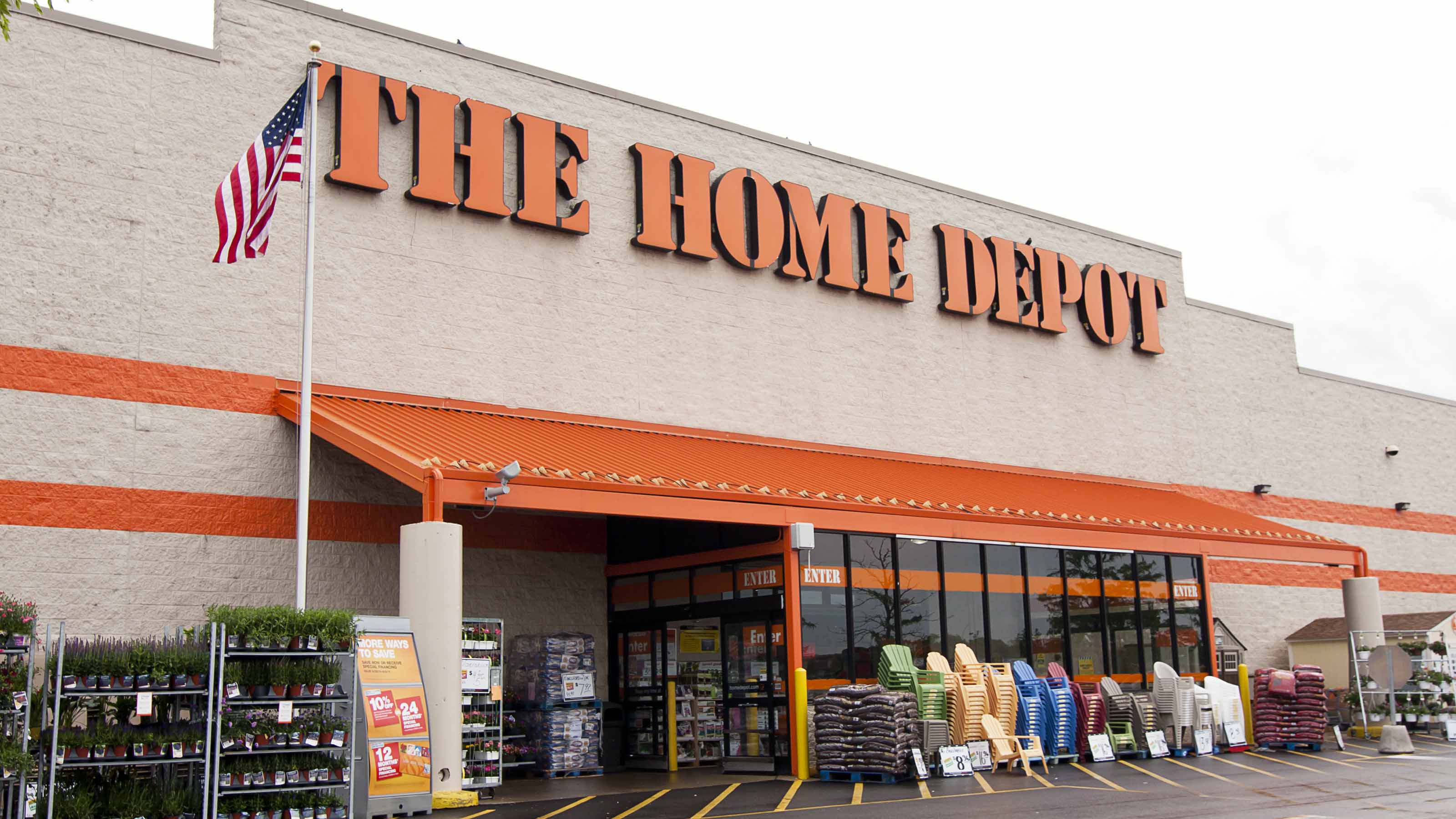
Home Depot
- Market value: $307.7 billion
Not only was much of America forced to work from home during the pandemic – many of them also chose to work on their homes as well.
For instance, in June, CNBC reported that kitchen and bath remodeling projects were up 40% compared to last year, home extensions and additions improved by 52%, and fence installations and repairs jumped 166%. Lumber joined toilet paper and hand sanitizer as an early victim of coronavirus shortages. While it's easy to find toilet paper and hand sanitizer now, lumber remains in short supply due to all those home renovation projects.
Gardening centers saw record-breaking sales, too, as homeowners sought to beautify their properties; many even planted "victory gardens" to guard against food shortages.
These pandemic projects have been great for Home Depot (HD, $285.85), the world's largest home improvement retailer. In its fiscal second quarter, reported in August, the company blew past estimates with revenues of $38.1 billion (up 23.4% YoY) and profits of $4.3 billion (up 25%).
We've listed Home Depot among several housing market stocks to buy, and analysts remain in the Buy camp too. Twenty-one analysts call it a Buy or Strong Buy, versus 11 Holds and one Strong Sell. Simply put, homebuilding and home-improvement projects should stick around for even longer, justifying their continued presence among coronavirus stocks to buy.
A UBS Evidence Lab DIY survey of more than 2,000 adults shows "consumers remain highly engaged in this category & indicate that they will continue to be for a while." It shows that, as of September, 65% of homeowners expect to do a home-improvement project within the next three months, up from 64% in 2019 and 61% in 2018. "This should continue to support the category."

Akamai Technologies
- Market value: $16.7 billion
Akamai Technologies (AKAM, $102.71) is one of those tech companies that most people only know if they have a reason to. In this case, those people would be IT professionals.
But the performance of AKAM shares – up 19% year-to-date – has put it on a first-name basis with many investors in the know.
Akamai operates the world's largest content delivery network (CDN). A CDN uses clusters of web servers that either host websites, or cache content, offering improved security and faster performance. For customers, this means less risk, lower bandwidth usage, faster web page load times, and redundancy.
For consumers, the CDN is invisible.
Akamai's CDN network comprises of 300,000 servers distributed across 136 countries. Its customers include 53% of the Fortune 500, more than 800 retailers, over 320 financial services firms, at least 225 game publishers, over 225 broadcast and pay TV networks, and 50-plus social media providers.
The appeal here should be obvious: The pandemic has made the Internet more critical than ever. Services – be they online shopping, video streaming or just communicating online – depend on a fast, secure and always-available internet connection.
Akamai's revenue has grown alongside internet traffic. The company's most recent results included a Street-beating $793 million in revenues (+12% year-over-year) and better-than-expected earnings of $1.31 per share. And numerous analysts continue to believe AKAM will be among the better coronavirus stocks to buy heading into 2021.
"We view shares as undervalued at 17.5 times our estimated 2021 EPS of $5.48, which is below the midpoint of its historical 16-25 times range," William Blair's Jim Breen (Outperform) wrote in late October. "We believe Akamai is strategically well positioned in an industry with supportive underlying fundamentals."
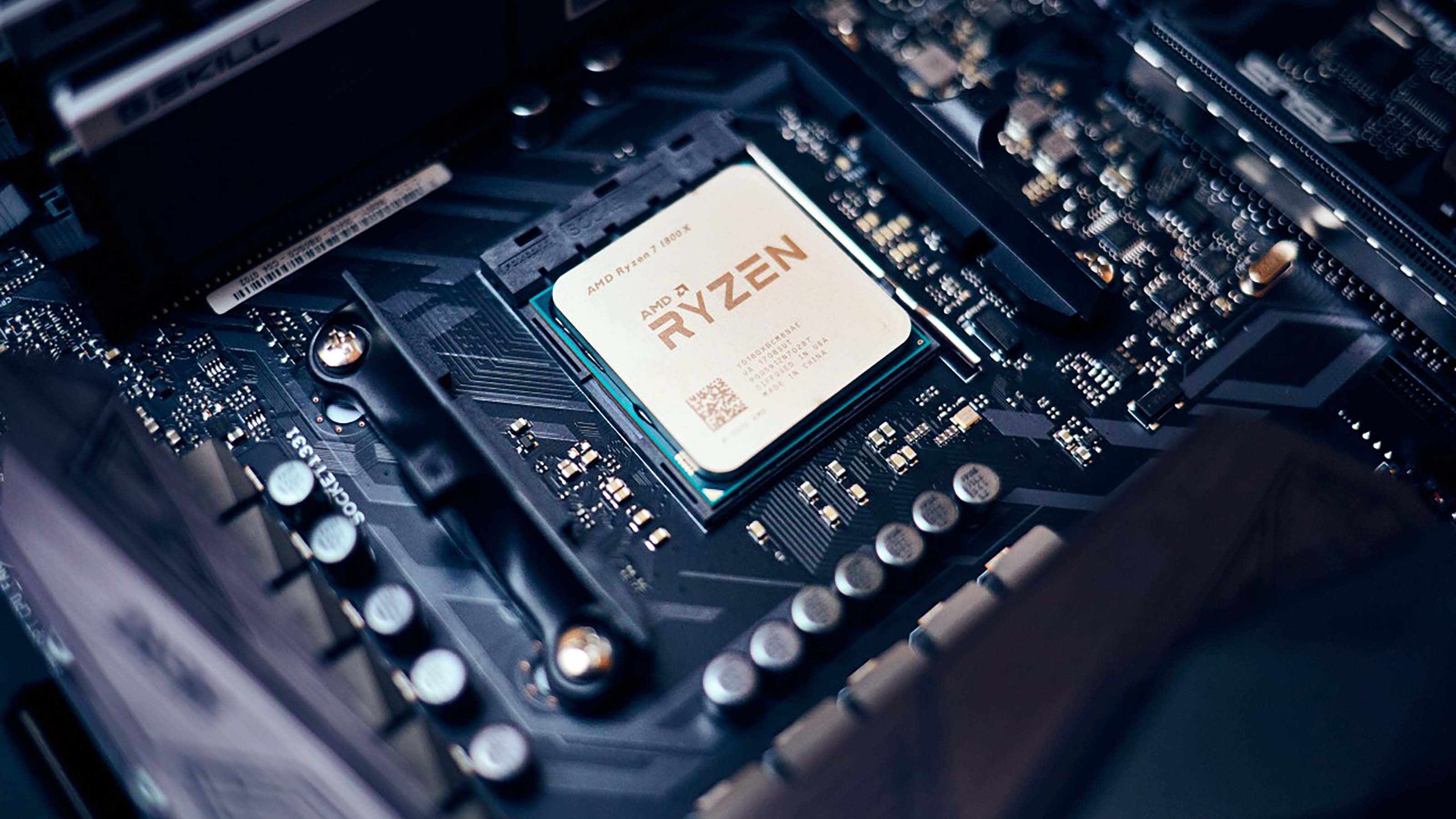
Advanced Micro Devices
- Market value: $99.8 billion
Resurgent chipmaker Advanced Micro Devices (AMD, $83.00) has been a safe growth bet for several years. In 2019, it was the S&P 500's top performer, with a return of 148%. And it has tacked on another 81% in 2020.
Advanced Micro Devices had already been making gains on rivals with its latest generation of PC processors and graphics cards. The pandemic served to boost demand for many devices that use AMD components: laptops, gaming PCs and servers.
The combination of higher overall demand and continued inroads against competitors like Intel (INTC) – which cratered this summer after announcing its 10nm processors would be delayed by at least six months – has resulted in strong operating results. In Q2, revenues jumped 26% year-over-year to $1.9 billion. In Q3, revenues surged 56% to a record $2.8 billion, causing profits to more than double.
Besides recently announced processors and graphics cards that were, AMD also supplied the custom silicon that powers the new Xbox Series X and PlayStation 5 game consoles. With the expected boost from new products and those game consoles, the company's revenue guidance for Q4 is $2.1 billion (plus or minus $50 million), which would represent a whopping 40% YoY increase.
And going forward, AMD's acquisition of Xilinx (XLNX) could help keep the pedal down.
"We positively view the announced acquisition of Xilinx this morning, as it brings together complementary product offerings and increases its addressable market," writes CFRA analyst Angelo Zino (Buy), who has a $100 price target on shares. "We see significant share gain on the horizon within its server business, with considerable interest for its next-generation Milan server processors set to begin volume shipments in early '21."
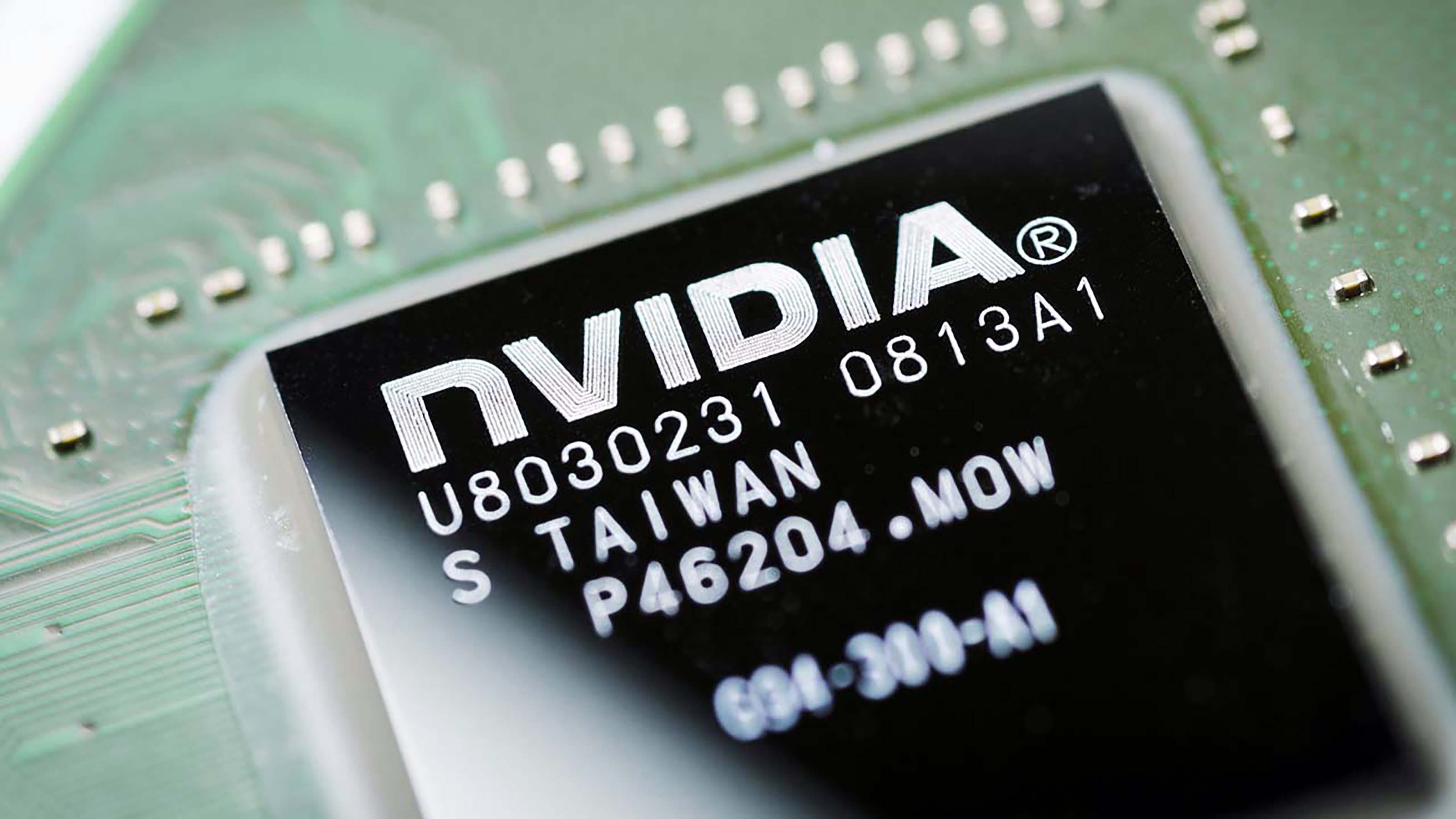
Nvidia
- Market value: $349.8 billion
The best coronavirus stocks have room for more than one chipmaker.
Graphics card specialist Nvidia (NVDA, $566.40) has enjoyed many of the same coronavirus pandemic "benefits" as rival AMD.
The demand for laptops for those working and learning from home has helped to boost PC sales. After years of decline PCs returned to growth during the second quarter (either by 2.8% or 11.2% year-over-year, depending on whose figures you believe). Graphic card sales got a boost, too, as PC gamers looked to maximize the performance of their rigs. Sales of Nintendo's Switch portable game console – powered by a custom Nvidia processor – doubled in March.
However, Nvidia's datacenter presence is booming, too. Its chips power servers that need parallel processing for intensive processes including artificial intelligence, machine learning, autonomous automotive applications and data science.
During the second quarter, that datacenter division hit a major milestone. Overall revenues of $3.87 billion were 50% better year-over-year, and for the first time, datacenter sales were the largest contributor, up 167% to $1.75 billion. (Gaming did just fine, up 26%.)
Yes, NVDA shares have jumped 141% in just about 10 months. But 29 analysts call it a Strong Buy or Buy, versus five Holds, two Sells and one Strong Sell.
"We recommend establishing or adding to positions in this preeminent vehicle for participation in the AI economy," writes Argus Research's Jim Kelleher (Buy). "We believe that most technology investors should own NVDA in the age of deep learning, AI, and GPU-driven applications acceleration."
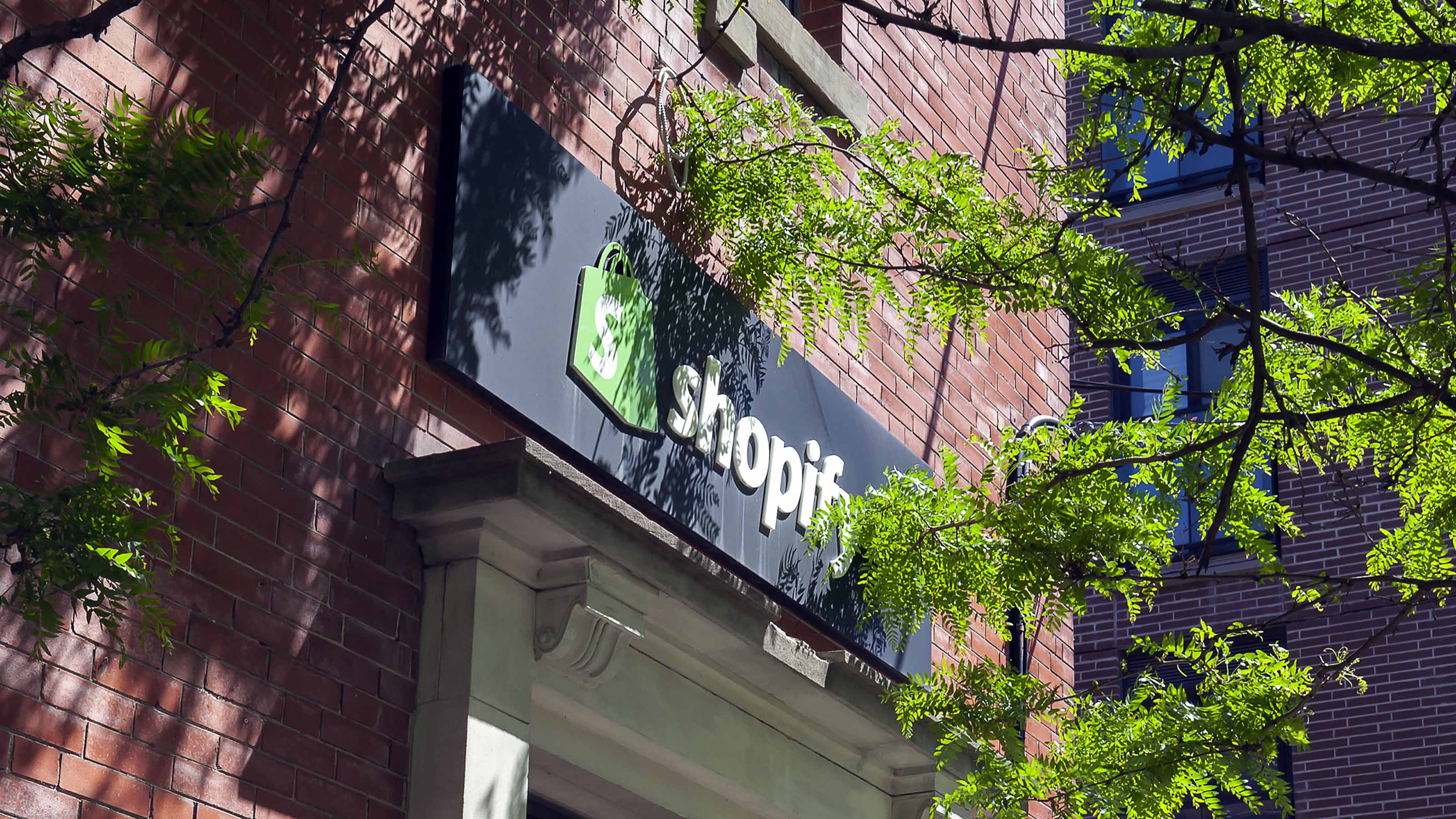
Shopify
- Market value: $126.4 billion
COVID stock losses suffered by Canadian e-commerce company Shopify (SHOP, $1,036.50) were brief and shallow. In fact, in early May – when SHOP was trading in the $700 range (it's now well over $1,000) – Shopify became Canada's most valuable publicly traded company. And the company now sits on 160% year-to-date gains.
Shopify was already doing very well in its quest to get small retailers online. It offered a do-it-yourself e-commerce platform, with a customized storefront that let businesses sell products under their own name instead of being Marketplace sellers on Amazon. Shopify also has been in the process of building out its own network of fulfillment centers to take on Amazon with shipping to customers. It even has point-of-sale solutions for small retailers.
In 2018, Shopify merchants sold $1.5 billion in goods over the Black Friday/Cyber Monday sales stretch. In 2019, that nearly doubled to $2.9 billion. When the pandemic hit and stores were forced to shut their doors, there was a rush for small businesses and stores to get online. Many of them chose Shopify. And in April, the company was touting "Black Friday-level traffic."
SHOP stock may not have another year quite like 2020, but it's still among the market's most attractive coronavirus stocks. Its e-commerce platform is expected to gain in popularity as retailers continue to add online shopping capability to their mix.
"(Shopify) has the ability to capture share in e-commerce in the near term and is poised to benefit from the acceleration in e-commerce trends over time," writes Wedbush analyst Ygal Arounian (Outperform). Argus Research's Jim Kelleher is also in the Buy camp, writing, "Although SHOP has run up sharply year-to-date, the company has a strong runway for growth in the small to midsized merchant market, which is only lightly penetrated."

Nintendo
- Market value: $69.3 billion
Nintendo (NTDOY, $72.70), in many corners, was one of the biggest headlines of the pandemic. For months, it was virtually impossible to buy the company's portable video game console, the Switch. It was the must-have gaming device. And Animal Crossing, a relaxing Switch-exclusive game that let players explore and decorate an island while visiting other players' islands, was heralded as "the game for the coronavirus moment."
In the first six months of fiscal 2020, Animal Crossing sold 14.27 million units to bring its lifetime total to 26.04 million copies, making it the system's second selling-game. Across all software, Nintendo reported a 71.4% increase to 100.25 million units. Hardware sales reached 12.53 million units, up 80.9% year-over-year.
While Nintendo might get somewhat overlooked given the release of the PlayStation 5 and Xbox Series X, the Switch should still make it onto many Christmas wishlists. There are also rumors that Nintendo is developing a Switch Pro – along with a slate of 4K game titles – that could keep the party going.
"We revise up our forecasts based on Apr-Jun results and current conditions," writes Nomura Securities analyst Junko Yamamura (Buy). "This is mainly because progress with the lengthening of the hardware and software lift cycles has exceeded our expectation."

DocuSign
- Market value: $43.8 billion
DocuSign (DOCU, $236.77) was one of the most straightforward beneficiaries of the coronavirus pandemic, and for obvious reason. DocuSign facilitates digital signatures at a time when everyone is being forced to work remotely.
Indeed, the stock has more than tripled so far this year as everyone got onboard that train. But some of those gains were a much-deserved catch-up. Shares had mostly treaded water for a couple years prior, despite the fact that the appeal of DocuSign's offerings had been growing for years.
The pandemic certainly juiced DocuSign's ramp-up, however. In its latest quarter (ended July), for instance, revenues spiked by 45% year-over-year. That followed a 39% jump in its previous quarter.
But what keeps DocuSign on any list of coronavirus stocks to buy, despite its massive gains, is just how likely this technology is to remain the norm for businesses.
"Strong fundamentals coupled with more durable COVID-19 tailwinds make the DocuSign story more compelling than ever," write Morgan Stanley analysts, who project "very healthy renewal rates" for DocuSign's services, with companies seen as unlikely to return to manual processes, even after the pandemic has passed.
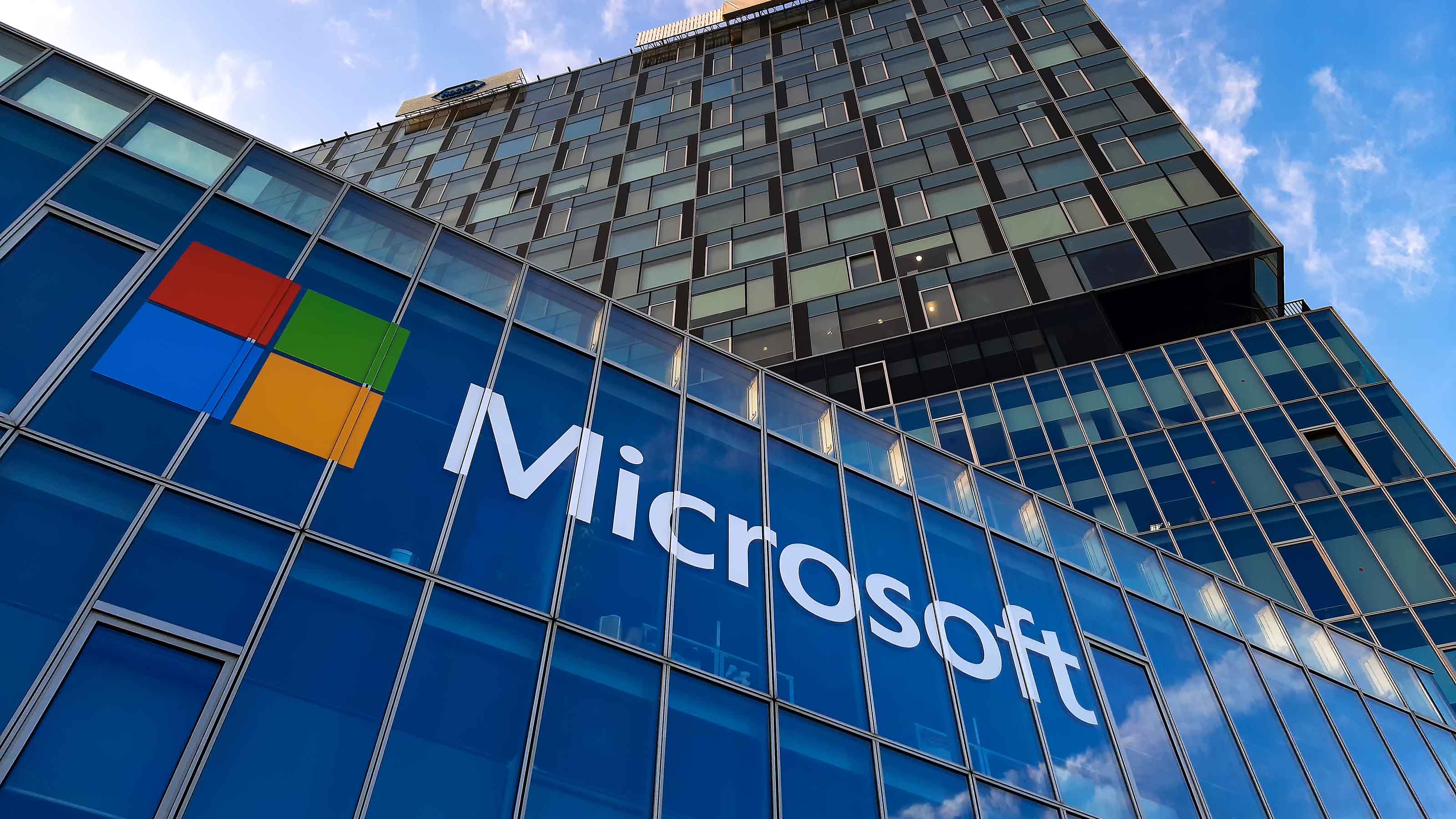
Microsoft
- Market value: $1.69 trillion
Finally, one of the oldest, largest, and most established tech companies has also made lemons out of lemonade, and it's positioned to continue pressing its advantage.
Microsoft's (MSFT, $223.29) positioning among coronavirus stocks actually goes back to 2014. The stock had been in the doldrums for years, but Satya Nadella's ascent to CEO changed that – in large part because of his push to cloud services.
And the pandemic has played right into that strength – and others.
"Microsoft is one of the few companies showing continued momentum in the face of COVID-19 disruptions," writes Argus Research's Joseph Bonner (Buy). "CEO Satya Nadella has pivoted Microsoft toward high-value commercial and cloud application businesses, just the right product set as enterprises rapidly move to the cloud and remote connectivity."
Higher demand for laptops. Increased popularity in gaming. Spiking demand for employee collaboration and video conferencing solutions. Growing need for cloud computing bandwidth. Microsoft has solutions for all of those needs.
Its Azure cloud platform has been the belle of the ball, growing 48% year-over-year in the latest quarter. But Surface hardware revenue jumped 28%, too. Product and services revenues improved by 6%. And Xbox content and services revenue bounded by 65%. The continuation of its strong performance in 2020 has led shares to a 41%-plus year-to-date gain.
Wall Street expects more. Analysts' consensus price target of $241.72 implies a modest 8% gains over the next year. But they clearly see Microsoft in an overwhelmingly positive light – 33 of 35 pros covering the stock consider it a Buy.
Profit and prosper with the best of Kiplinger's advice on investing, taxes, retirement, personal finance and much more. Delivered daily. Enter your email in the box and click Sign Me Up.

Brad Moon is a tech industry veteran who contributes to a range of publications including Forbes, InvestorPlace and MSN Money and is an original member of the award-winning GeekDad blog. Over the past decade, he has also written about technology for Wired, Gizmodo, Shaw Media, About.com, The Winnipeg Free Press and others.
-
 Ask the Tax Editor: Federal Income Tax Deductions
Ask the Tax Editor: Federal Income Tax DeductionsAsk the Editor In this week's Ask the Editor Q&A, Joy Taylor answers questions on federal income tax deductions
-
 States With No-Fault Car Insurance Laws (and How No-Fault Car Insurance Works)
States With No-Fault Car Insurance Laws (and How No-Fault Car Insurance Works)A breakdown of the confusing rules around no-fault car insurance in every state where it exists.
-
 Why Picking a Retirement Age Feels Impossible (and How to Finally Decide)
Why Picking a Retirement Age Feels Impossible (and How to Finally Decide)Struggling with picking a date? Experts explain how to get out of your head and retire on your own terms.
-
 Stocks Sink With Alphabet, Bitcoin: Stock Market Today
Stocks Sink With Alphabet, Bitcoin: Stock Market TodayA dismal round of jobs data did little to lift sentiment on Thursday.
-
 Dow Leads in Mixed Session on Amgen Earnings: Stock Market Today
Dow Leads in Mixed Session on Amgen Earnings: Stock Market TodayThe rest of Wall Street struggled as Advanced Micro Devices earnings caused a chip-stock sell-off.
-
 Nasdaq Slides 1.4% on Big Tech Questions: Stock Market Today
Nasdaq Slides 1.4% on Big Tech Questions: Stock Market TodayPalantir Technologies proves at least one publicly traded company can spend a lot of money on AI and make a lot of money on AI.
-
 If You'd Put $1,000 Into AMD Stock 20 Years Ago, Here's What You'd Have Today
If You'd Put $1,000 Into AMD Stock 20 Years Ago, Here's What You'd Have TodayAdvanced Micro Devices stock is soaring thanks to AI, but as a buy-and-hold bet, it's been a market laggard.
-
 Nasdaq Drops 172 Points on MSFT AI Spend: Stock Market Today
Nasdaq Drops 172 Points on MSFT AI Spend: Stock Market TodayMicrosoft, Meta Platforms and a mid-cap energy stock have a lot to say about the state of the AI revolution today.
-
 S&P 500 Tops 7,000, Fed Pauses Rate Cuts: Stock Market Today
S&P 500 Tops 7,000, Fed Pauses Rate Cuts: Stock Market TodayInvestors, traders and speculators will probably have to wait until after Jerome Powell steps down for the next Fed rate cut.
-
 S&P 500 Hits New High Before Big Tech Earnings, Fed: Stock Market Today
S&P 500 Hits New High Before Big Tech Earnings, Fed: Stock Market TodayThe tech-heavy Nasdaq also shone in Tuesday's session, while UnitedHealth dragged on the blue-chip Dow Jones Industrial Average.
-
 Dow Rises 313 Points to Begin a Big Week: Stock Market Today
Dow Rises 313 Points to Begin a Big Week: Stock Market TodayThe S&P 500 is within 50 points of crossing 7,000 for the first time, and Papa Dow is lurking just below its own new all-time high.

